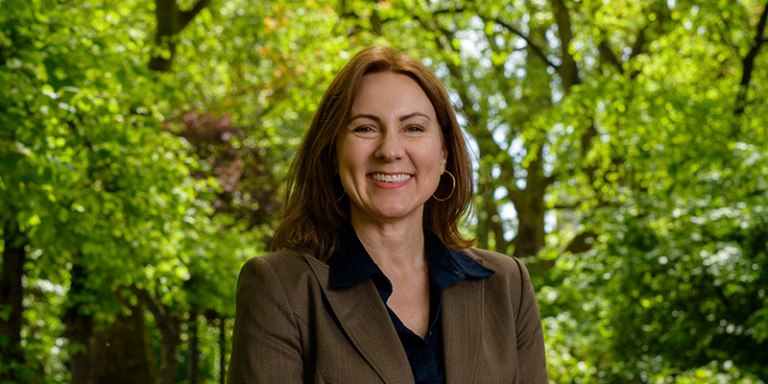Moving the dial on climate change and international development
8 June 2022
Professor Jennifer Hudson explores the transformative power of empathy and collaboration

This interview originally appeared in the UCL Policy Lab magazine.
“The world feels out of control to people right now,” says Professor Jennifer Hudson, one of UCL’s leading thinkers on international development. “There are really big problems we hear a lot about, whether that’s Covid-19, climate change, gender inequality, racism.” Together, they “feel like big, intractable problems and a lot of people we need to inspire are feeling the weight of these big problems.”
And what is worse, no one in authority, including leading experts and researchers, appears to be presenting people with very clear answers. Hudson gives an example from her own area of expertise. “We are not good at giving people menus or recipes to say: ‘if you want to engage with sustainable development, here are the five things you can do as an individual that add up in this way.’ That’s not our narrative.” Instead, “we say that if the temperature goes below 1.5 degrees Celsius, then the world will burn. And with that mindset, they feel a lack of control.” In part, this is because the problems are very big and are each driven by immense structural issues, which no individual can hope to address by themselves.
But even so, Hudson explains, there is no reason to be fatalistic. One of the chief roles of academic experts, she argues, is to “figure out how to convince people that individual behavioural change is important and that collectively, it adds up to something,” she says. At the same time, we need to “persuade them to look at the bigger picture, motivating governments to take up the big structural changes without making people feel that this is out of their control or a lost cause.”
That is no easy task, of course, and taking on the challenge requires academics to learn new skills and develop fresh techniques.
“People can be moved,” Hudson outlines, “but attitudes and behaviours are hard to change. In the environment, we’ve seen this unfold in the last 10 years with increasing polarisation. We can shift people, but we are working against entrenched beliefs about what is right and what is good.”
“I was brought up as a traditional academic and all my thinking and all my engagement was with other academics,” Hudson continues. She says that learning how to help “move the dial” on the politics and policymaking of sustainable development demands something else altogether.
“We need to be better at talking to people where they are at. Academics have their own language; we exist in our own kind of bubbles and the public are very distant from that, by and large. And you can’t come to the public with a communications piece or a message that isn’t their starting point, because they will immediately reject it. You have to engage people at the point where they are willing to listen, because you are saying stuff that validates their experiences.”
The answer, she insists, lies in real partnership, sustained collaboration and, most of all, empathy. “We need to be empathetic to people and their positions. You are not going to move people by browbeating them into something. You really must put yourself in their shoes and ask whether you can have a conversation that is meaningful and move people along.”
And that, Hudson explains, is the very heart of a new research practice.
If we want to do better research and also contribute to change in the world, then there are clear guidelines about what to do. “It’s vital to sit and talk with external partners, to understand their constraints and what they’re thinking about. Then you have to figure out how to do the research part of it, and bring it back to them to keep the conversation going.
Jennifer Hudson is Professor of Political Behaviour, Dean for the Faculty of Social & Historical Sciences and Chair of the UCL Policy Lab Steering Committee
 Close
Close

